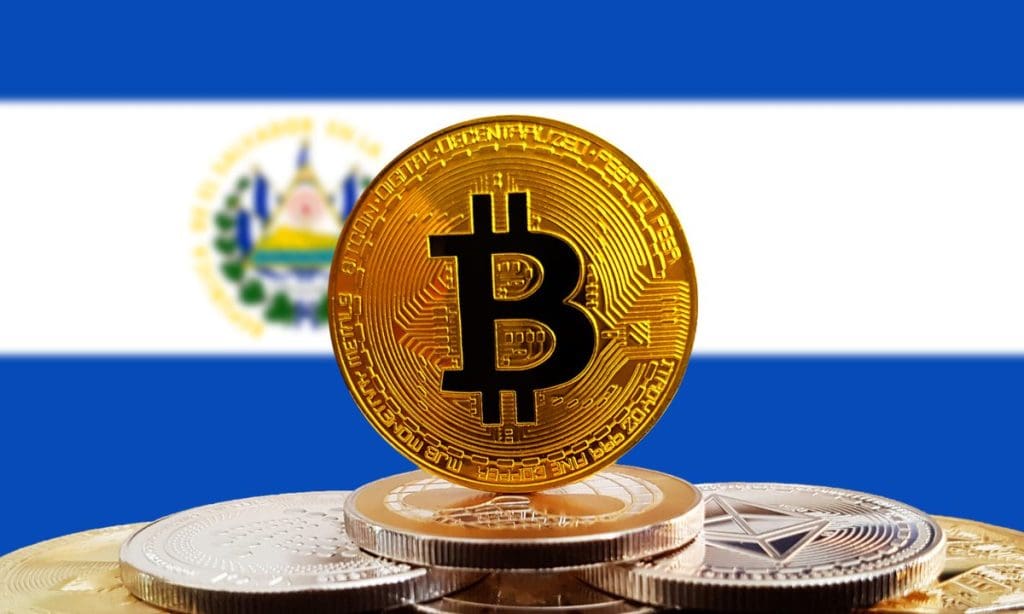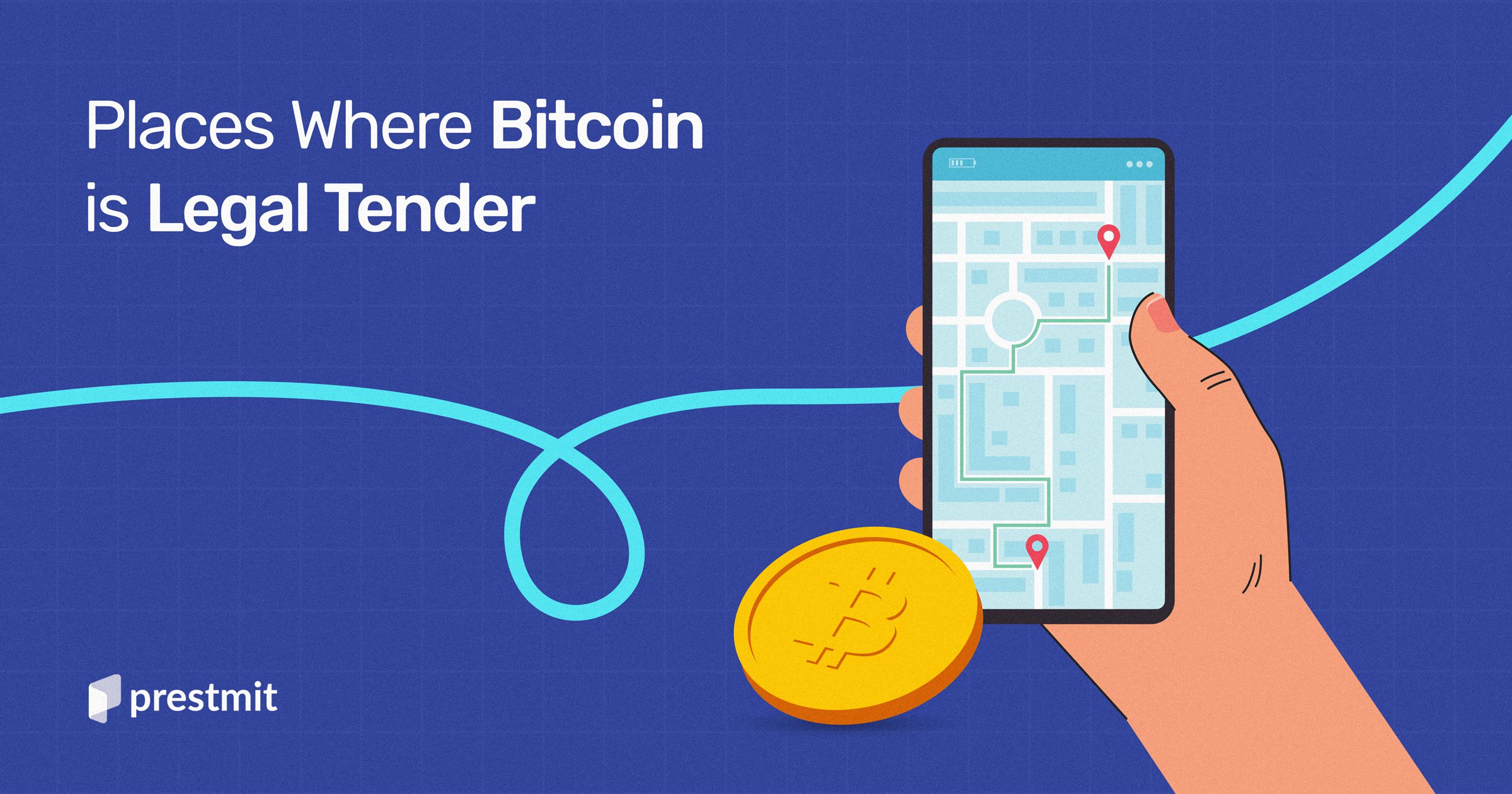Table of Contents
Bitcoin has enjoyed huge success since it was created as an alternative to the traditional fiat currency in 2009. Today, there are a few nations of the world that use Bitcoin as a legal tender.
Being the largest and most popular cryptocurrency in the world since its creation, it has been predicted by some crypto enthusiasts and financial experts as the future currency. Although Bitcoin is available in many parts of the world, it is outrightly banned in many countries and restricted in some. But the adoption rate is also increasing.
In this post, we’ll look at countries where you can use Bitcoin as a legal tender. But before we dive into that, let’s do a little summary about Bitcoin and why many want it.
What is Bitcoin?
Bitcoin is a decentralized digital currency without a central bank or single administrator. It can be sent from user to user on the P2P Bitcoin network without the need for intermediaries.
The cryptocurrency was invented in 2008 by an unknown person or group of people using the name Satoshi Nakamoto. Bitcoin began to use in 2009 when its implementation was released as open-source software.
As of today, Bitcoin is the largest and most popular cryptocurrency. Several other coins have been created using its model and are known as altcoins, i.e. alternative currency.
Nakamoto capped the number of bitcoins that could be created at 21 million. As of today, there are 19,430,143 BTC in circulation. It’s expected that all remaining bitcoins will be released by 2140.
Uses of Bitcoin (BTC)
Bitcoin has a lot of real-world use cases when compared with several other cryptocurrencies. It also has some advantages over traditional currencies, which makes it appealing to investors. Below are some of the use cases of Bitcoin.
1. Low-Cost Money Transfer
One of the biggest advantages of Bitcoin is that, compared to other electronic payment systems, it has a very low transaction cost. Bitcoin’s transaction fee is not nearly as costly as the fees on money transfers brokered by banks, credit cards, and commercial software.
Bitcoin is used by immigrants to send money home to their loved ones at a low cost. This is one of the main reasons countries like El Salvador turned to Bitcoin for their citizens. BTC allows immigrants to send cheap, practically-instant remissions.
2. Payment of Goods & Services
Just like physical money, BTC can be used for payment, whether online or physically. Some merchants in the world are already accepting Bitcoin as payment for purchases of goods and services.
You can purchase expensive cars such as a Lamborghini with Bitcoin. The Bitcoin luxury marketplace, De Louvois, enables the “crypto rich” to purchase sports cars using BTC.
3. Earn Interest
You can earn interest while trading Bitcoin and other crypto assets. Other crypto endeavours such as yield farming, staking, lending, and so on can make you earn from crypto.
You can buy bitcoin and sell at good market rates on an exchange or trading platform such as Prestmit.
What Does it Mean to Use Bitcoin as a Legal Tender?
Using Bitcoin as a legal tender means it can be used for the payment of goods and services in a particular jurisdiction, specifically within the confines of a country’s economy.
Central banks and regulators of a nation generally decide what is legal tender within their economy. This means that whatever form of value they deem fit to be a legal tender can be used to pay for goods at shops. For example, #100 and #500 notes are examples of legal tender in Nigeria.
Therefore, BTC as a legal tender means that when someone wants to pay for a purchase, they can use BTC to pay for it. Without a central bank declaring Bitcoin as legal tender, the risk of accepting BTC for goods sold would be with the shopkeepers.
If the central bank of a nation has explicitly declared Bitcoin as legal tender, then it becomes an official form of value exchange within the economy.
Meanwhile, some countries have launched and while others are planning to launch their own Central Bank Digital Currencies. CBDCs are robust alternatives to crypto assets such as BTC, LTC, DOGE, and so on.
Countries Where Bitcoin Can Be Used as a Legal Tender
The central bank and governments of a few nations of the world have already made Bitcoin their legal tender. The countries that have made this move are discussed below.
1. El Salvador

Photo Source: Pymnts.com
El Salvador is one of the leading countries where a big percentage of the GDP is contributed by remittances. For instance, 24.07% of El Salvador’s GDP in 2020 came from remittances. This is the major reason took to Bitcoin as a legal tender. Another reason is the financial inclusion of their economy in the global picture.
In 2021, El Salvador became the first nation in the world to make Bitcoin legal tender. Apart from macroeconomic factors, the country had a leader who was willing to experiment with Bitcoin. President Nayib Bukele has since been a loyal ambassador of cryptocurrency.
2. The Central African Republic

Photo Source: Thestreet.com
Central African Republic is the second country to have BTC as its legal tender. The CAR is rich in natural resources like gold and diamond and has a $2.3 billion sized economy.
The country, however, has very low financial inclusion and relies on remittances like El Salvador. The CAR has not only made Bitcoin a legal tender, but it has also launched its own government-backed crypto, the SANGO coin. It is a digital currency that will reflect the health of natural resources in the country.
El Salvador and CAR have both turned to Bitcoin to solve key issues around remittances while not being affected by the fluctuations of the U.S. dollar.
Are There Any Challenges with Adopting Bitcoin as a Legal Tender?
There are certain important factors that make it difficult to adopt Bitcoin as a legal tender.
1. Low Digital and Mobile Penetration
It’s challenging to adopt Bitcoin as a legal tender in a nation that has a very low digital and mobile penetration. Setting up Bitcoin ATMs in such countries would be practical for them to scale BTC as a default currency. However, Bitcoin civilisation is still far from that point, and this is one reason using Bitcoin as legal tender poses a huge challenge to the countries that do so.
2. Volatile Nature of Bitcoin
Due to the volatile nature of the crypto market, the price of the cryptocurrency can fall at any time, and this will be a huge loss to the economic status of any country using Bitcoin as a legal currency. Legal tender should be highly stable so as to encourage the settlement of debts. It should also serve as a means of exchange for the country’s citizens despite inflation and other economic factors. Hence using Bitcoin defeats that purpose because what would happen if the price of Bitcoin drops to a fifth of the price at any given point? It would be a colossal disaster for both the government and the citizens.
3. The Uncertainty of Regulations
Considering the fact that cryptocurrency has many regulations in some countries and none in others, it’s not wise to make it legal tender because there’s no general understanding regarding its use. Since it’s a decentralised currency, it’s not subject to control and regulation by the government and, as such, cannot really be a reliable means of exchange across bodies. Besides, the crypto market can react to the actions of regulators from countries like the USA. The price action that results can affect all countries that use Bitcoin as legal tender or as a reserve currency.
FAQs on Where Bitcoin is Used As a Legal Tender
Is Bitcoin legal tender in any country?
A: Yes. Bitcoin is used as a legal tender in about two countries of the world. Although some countries like Brazil now accept Bitcoin as a payment method, it is legal tender in very few countries.
What countries use Bitcoin as legal tender?
A: So far, only two countries in the world use Bitcoin as legal tender; El Salvador and the Central African Republic. Other countries like Brazil have authorised the use of Bitcoin and other cryptocurrencies as a legal payment means, but that’s where it ends.
Conclusion
Bitcoin is the biggest cryptocurrency today. One of the many successes it has recorded is its being used as legal tender. El Salvador and the Central African Republic are the two countries that have made BTC a legal tender so far. Due to the high volatile nature of the pioneer cryptocurrency, it will take a while for more nations to follow suit. However, it’s interesting to see the trajectory of Bitcoin over the years since its inception.
Last updated on November 24, 2025

